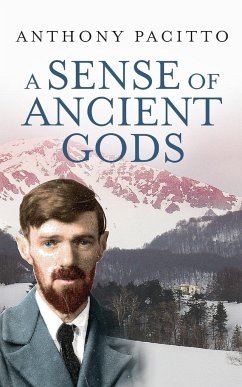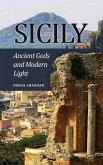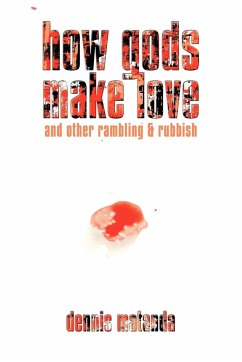1919 - The Great War is finally over. D.H. Lawrence had not been called up, his health too frail for military service. But for himself and his German wife Frieda, the war years had brought trials and hardships of their own. In 1915 they had moved to Cornwall, partly to live cheaply and partly to escape the clamour of war, (to which he was opposed). But in 1917, they fell under the absurd suspicion of signalling to German u-boats off the Cornish coast, and were summarily expelled from the county. They returned to London, spending the next two years moving about, staying with various friends. At a time of great patriotism, Lawrence's anti-war voice had made him unpopular, his new novel, The Rainbow, had been banned for obscenity, and the Cornish episode had left its mark on him. At the end of the war, Lawrence was poor, embittered and physically exhausted. In September 1919, he finally received his long awaited new passport, and in November he set off once more for his beloved Italy. Frieda had gone to Germany to see what condition her poor old mother was in, [Germany was being made to pay the price of the Kaiser's war, rations were meagre]. At the beginning of December, she joined Lawrence in Florence. There was a great collective sigh of relief to finally be out of England and back in a country they loved, and where they had spent two happy productive periods before the war. After a few days sightseeing in Florence, they headed south for Rome - and it is at this point that they leave the well-trodden path of great Italian art and culturel, and make a little-known journey out into the wild Abruzzo mountains to stay at the house of a strange old character who had been an artist's model in late Victorian London, one Orazio Cervi. It is unlike anything they had expected, as if they have crossed a hidden frontier into a land of myth, the unearthly paean of ancient bagpipes, the men, like brigands, with conical hats, skin sandals, and white swathed legs, the women, dark eyed, and with something of the hex in them - It was another world, its own world ¿ beautiful, ugly, harsh, cunning, threatening - all this he could see… They should move on, but can't. Something holds them there, something almost spectral, the mysterious influence of the mountains themselves. Digging deep into their already depleted physical and emotional reserves, they brave the icy conditions, settle in, and wait… Closed in by the snow and remoteness, they pass the time with their usual larking and playacting, bringing a slightly bemused Orazio into the proceedings. They are curious about the local area and its ancient history, and try and pick Orazio's brains. They paint, they sew, they stare out at the white white world that encloses them. But all the while the drama of those war years weigh on them, their mood by turns depressed and elated as they wonder how to break out of the dark circle of fate that has held them in its thrall. Poor old Orazio becomes a sort of benign but confused guide and confidante, and they take the old model to their heart. But in the background, the sensitive Lawrence is aware of something else, something he can't quite define, a voice, something about the place, as if it is trying to speak to him. It builds up inside of him. Then, in a moment of inspiration brought on by the ever insightful Frieda, something bursts through into his literary imagination. They know why they have come. From the brooding pagan mountain valleys, the spare coarse peasant existence, the pervading sense of fatalism, Lawrence would weave a new version of a novel he had been working on before the war, his first post war novel, The Lost Girl, (1920), the last chapters of which are set there in the village and at Orazio's villa.
Hinweis: Dieser Artikel kann nur an eine deutsche Lieferadresse ausgeliefert werden.
Hinweis: Dieser Artikel kann nur an eine deutsche Lieferadresse ausgeliefert werden.








